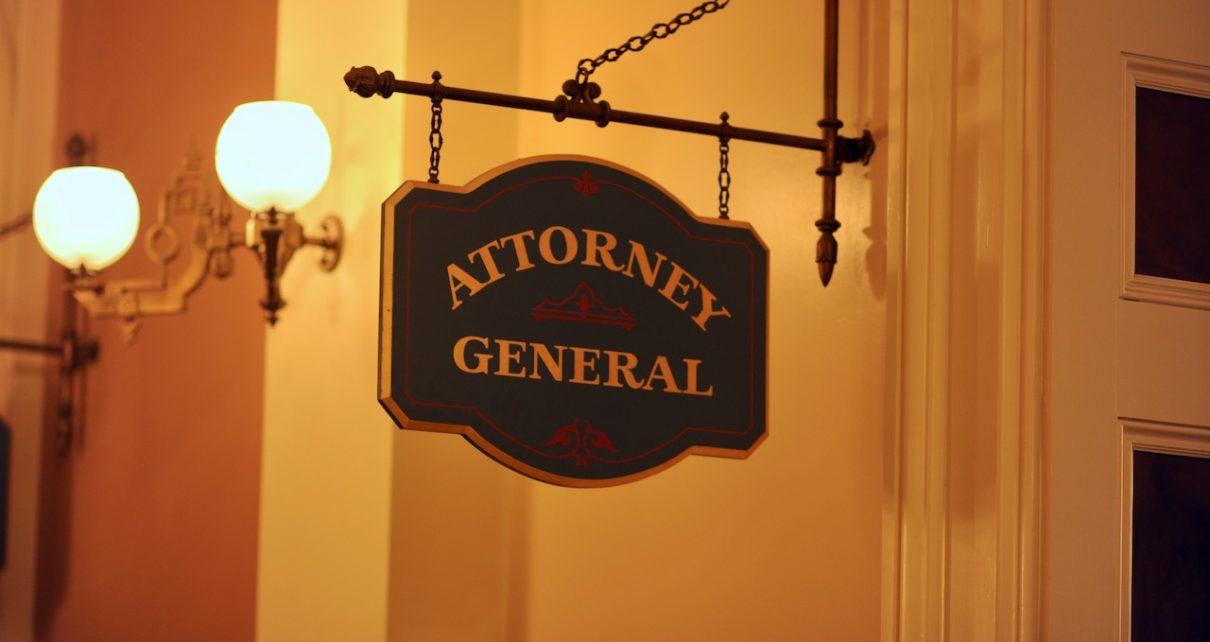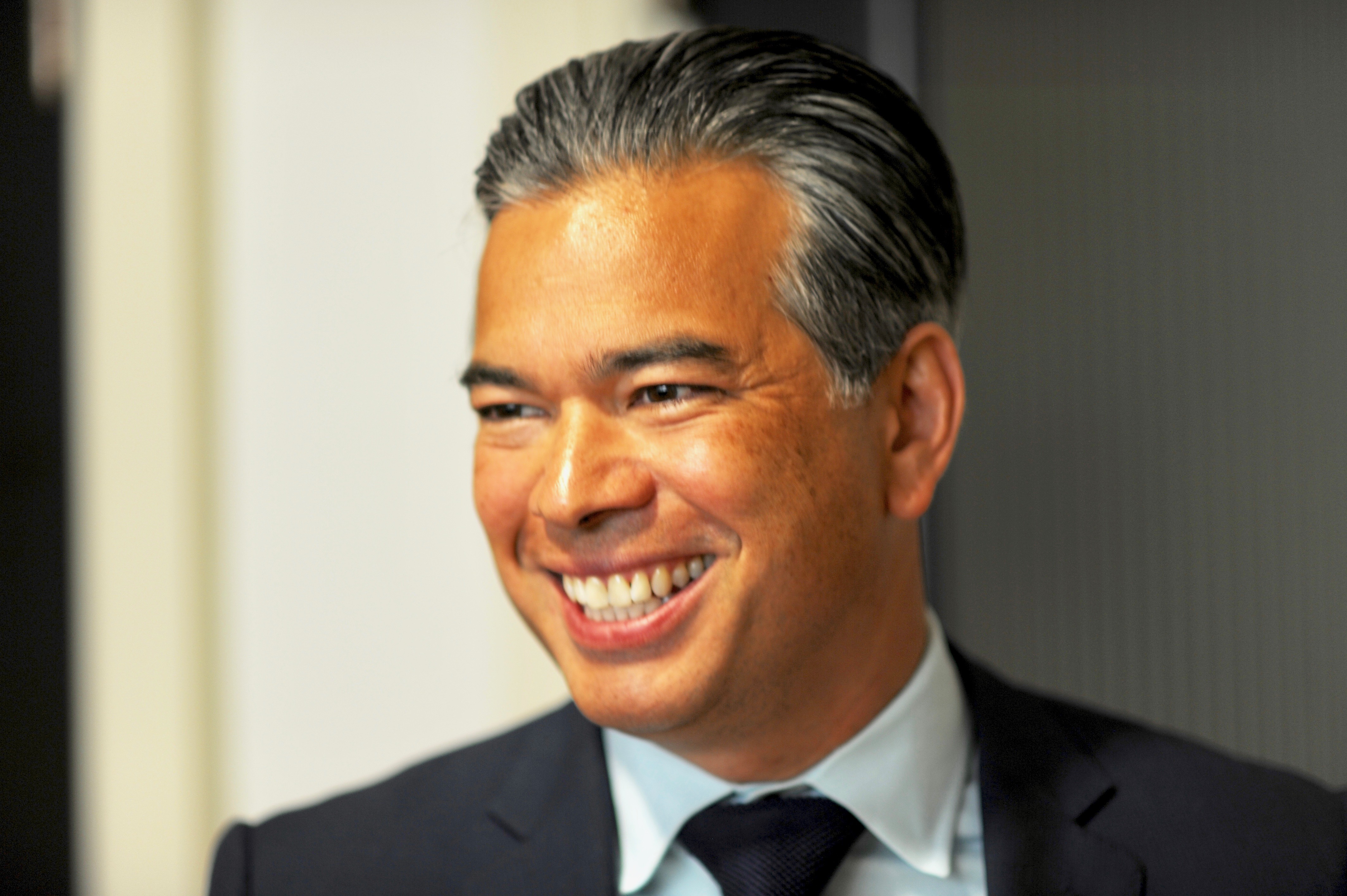
Attorney General Sign. (Photo: Kevin Sanders for California Globe)
What the Attorney General Candidates are Saying About Defending Laws They Disagree With
‘I would study the issues and do what I believe was the right thing to do’
By Thomas Buckley, May 11, 2022 9:27 am
In the course of doing every job, there are times when one would strongly not wish to perform an assigned task. If you’ve ever worked in a restaurant and been told to clean out the filters above the ovens and stoves, you know the feeling.
But on occasion the assignment is personally problematic for other reasons. One could question the ethical implications of the task – for those who work in public relations that can be a near monthly feeling – or one could simply oppose the likely outcome of the task if performed properly, such as being an engineer personally dedicated to massively expanding public transit who knows that, technically, they could re-design a freeway on-ramp that would cut neighborhood traffic in half.
Just as Willie Wonka’s efforts to save Augustus Gloop as he was zlurped up the tube in the chocolate room consisted entirely of casually saying “wait, stop, come back,” the Attorney General has significant leeway in what they can focus on, pursue, or ignore. Hence today’s question:
In certain situations – such as the legal defense of Proposition 8 – the Attorney General may be asked to mount a legal defense of a state and/or voter action they personally disagree with. Do you believe the Attorney General is bound to defend the laws – and propositions passed by the voters – of the State of California?

Nathan Hochman:
The oath of office I would take as California Attorney General is that I will support and defend the U.S. and California Constitutions. Toward that end, my role is to defend the laws properly enacted by the State Legislature and signed by the Governor, or passed by the voters as propositions, that are constitutional under the US and California constitutions. My role is not to create laws nor act in a legislative capacity.

Eric Early:
The Attorney General is bound to defend laws which are constitutional laws, even if they disagree with those laws. I believe that a number of laws coming out of Sacramento in the past few years, thanks to the complete arrogance of power, are of questionable constitutionality. I will charge a group of lawyers at the DOJ to review the constitutionality of certain existing California laws. To the extent they do not pass the constitutionality test, we will decide how I, as Attorney General, will deal with them.
As Attorney General, I will be sworn to protect and defend the United States and California Constitutions. I will not be required to protect and defend against unconstitutional laws. And make no mistake – simply because a law comes out of the Legislature and is signed by the Governor does not make it constitutional. Case in point, for example, was the recent California Court ruling that Newsome’s bill requiring Corporate Boards to be made-up of specific genders and races of people, is unconstitutional.

Daniel Kapelovitz:
As Attorney General, I would do what was just. I would study the issues and do what I believe was the right thing to do. For example, I believe in defending the will of the people, but if, say, a proposition is clearly unconstitutional, I would not mount a legal defense of it.

Anne Marie Schubert:
The Attorney General takes an oath to protect and defend the laws of the United States and California. To do otherwise is a violation of that oath.
Attorney General Rob Bonta:
Well, again, nothing.
But it is possible that Bonta’s idea of the responsibilities of his office may differ from the other candidates, as he has filed an “amicus brief” supporting the Mexican government’s effort to sue American gun manufacturers, has sued the U.S. Postal Service for not buying enough new electric vehicles, and has threatened numerous cities with legal action if they fail to meet certain state-imposed housing goals.
If one does not see a clear political pattern there you may want to give LensCrafters a call.
- USC Valedictorian Gets the Hook - April 18, 2024
- Mayor Bass’s Billionaire Bake Sale - April 17, 2024
- From Sheriff to Governor: Riverside Sheriff Mulling Run - April 16, 2024




“But it is possible that Bonta’s idea of the responsibilities of his office may differ from the other candidates, as he has filed an “amicus brief” supporting the Mexican government’s effort to sue American gun manufacturers, has sued the U.S. Postal Service for not buying enough new electric vehicles, and has threatened numerous cities with legal action if they fail to meet certain state-imposed housing goals.”
Like all political animals, Rob Bonta’s nose is always sniffing out the best way to protect/support his benefactor – Gavin Newsom. He chooses to ignore the fact that, unlike the US Attorney General appointed by the POTUS, and who, as DOJ head, IS supposed to be responsible and responsive to the Executive Branch (something that Jeff Sessions did not fully understand in the Trump administration) the California AG is ELECTED and serves the citizens of CA first and foremost. Any deviation into activist judicial/prosecutorial policies by the CALAG will be met with a strong backlash from the voters and can, of course, include recall.
So Kapelovitz hails from the “the Constitution is a living/breathing entity that must be interpreted through the lens of perception of the related issue” school of thought, huh???
PASS – NEXT!!!